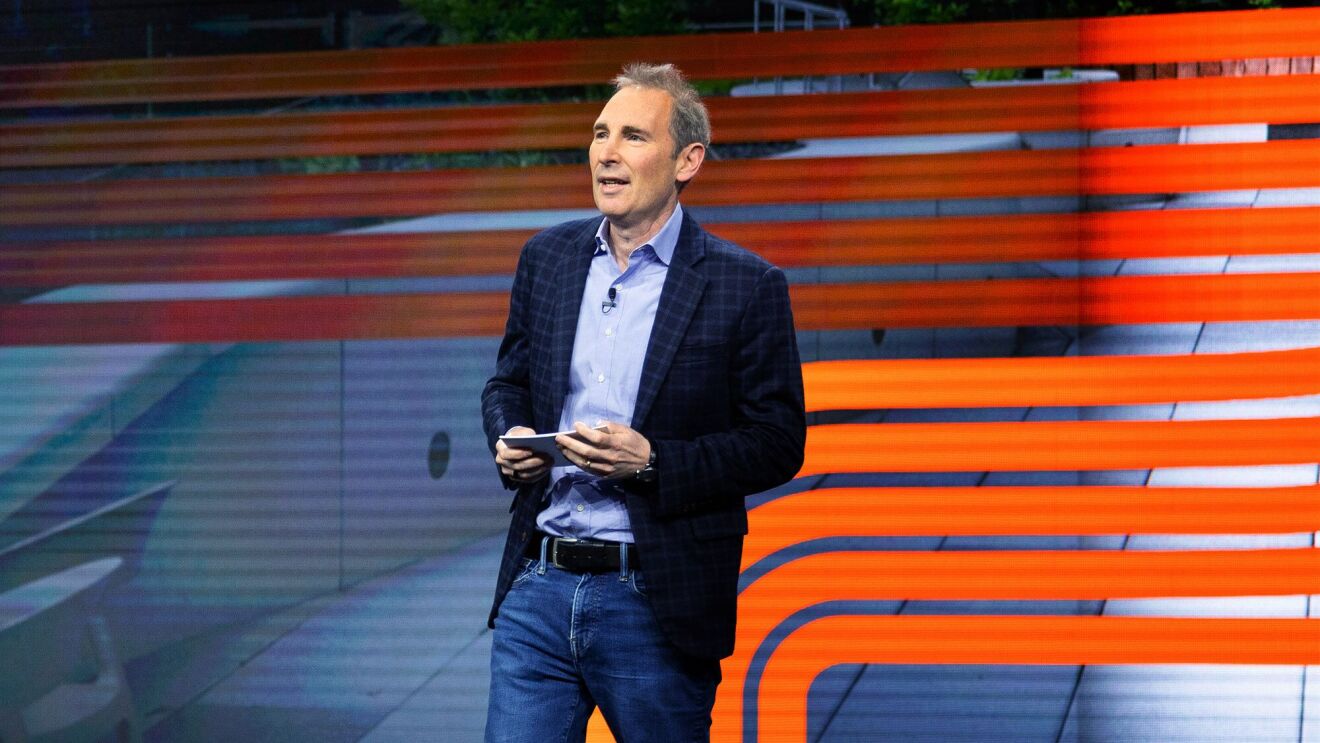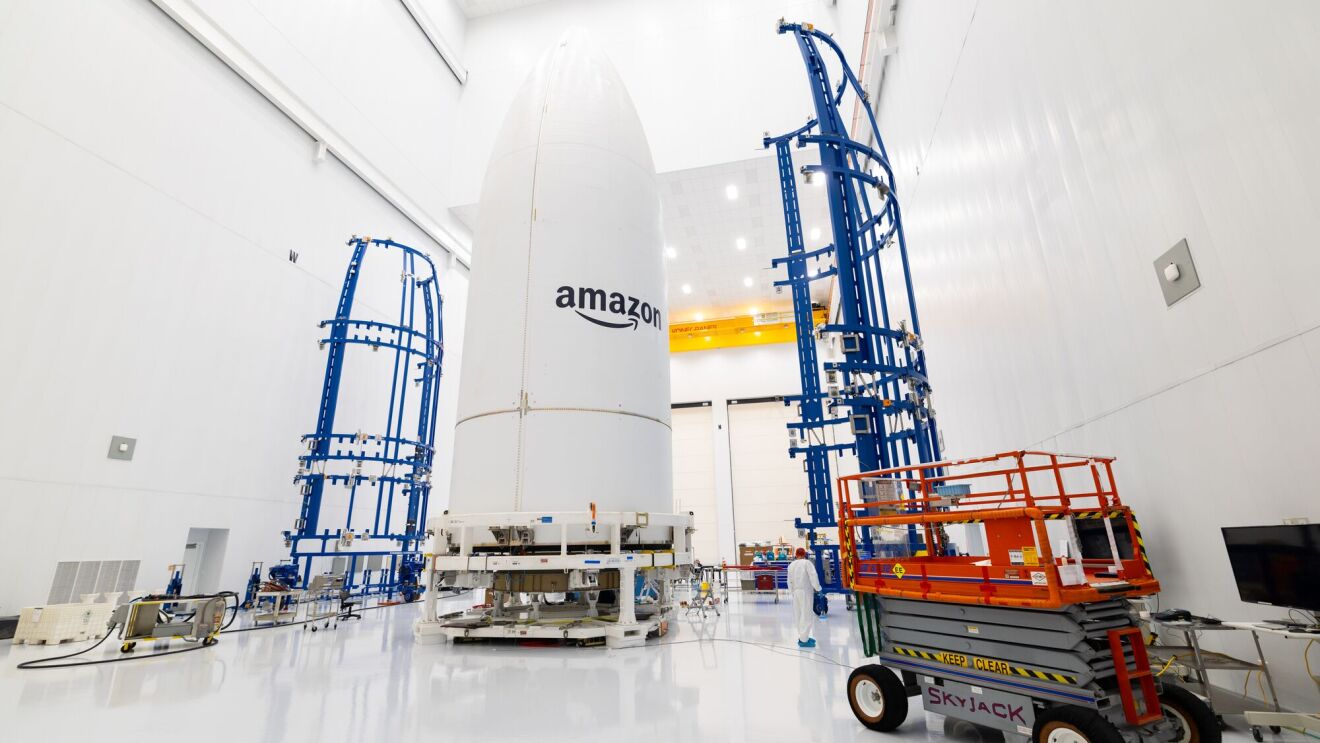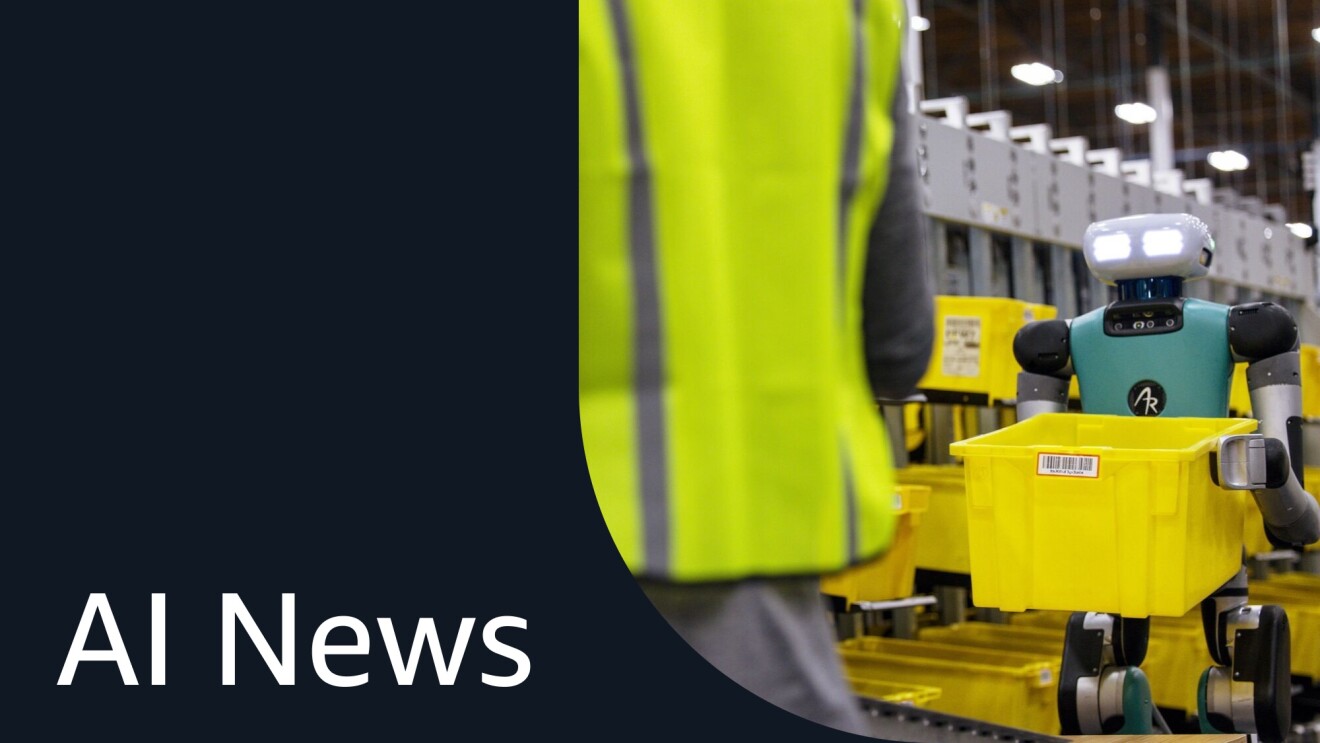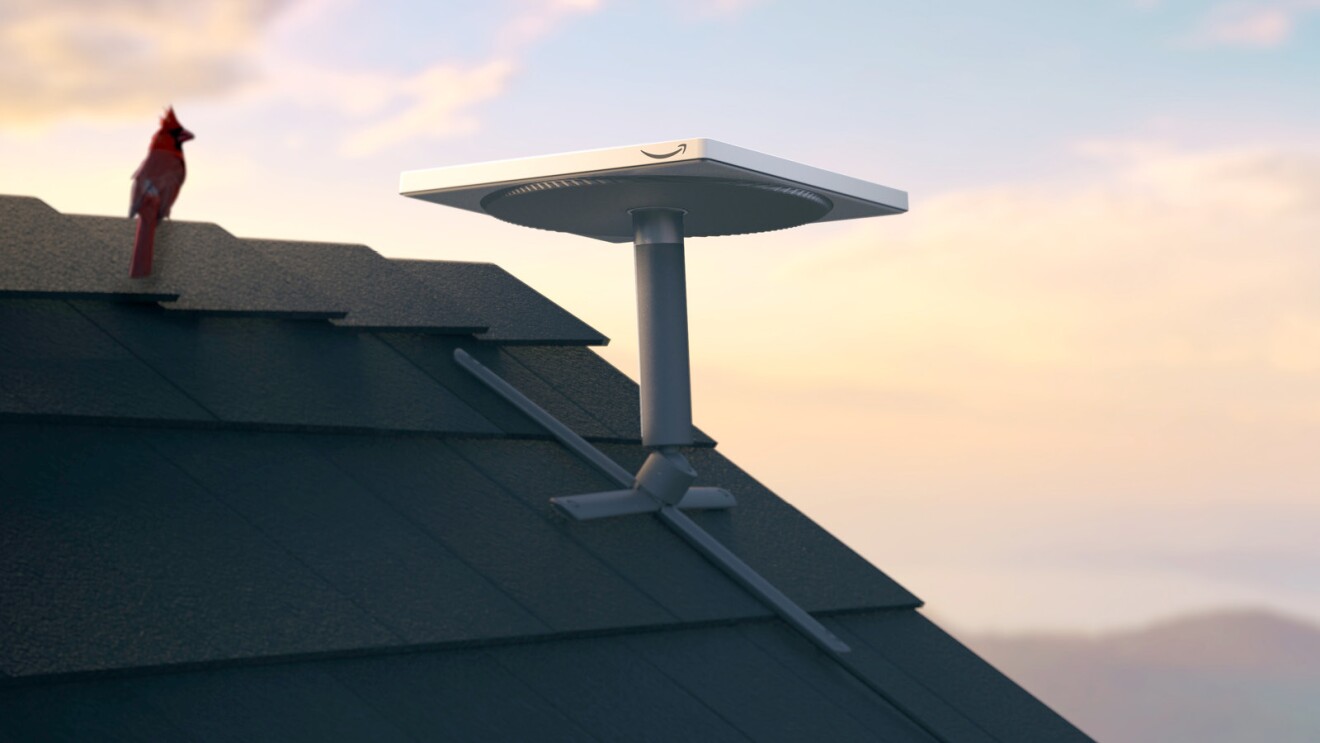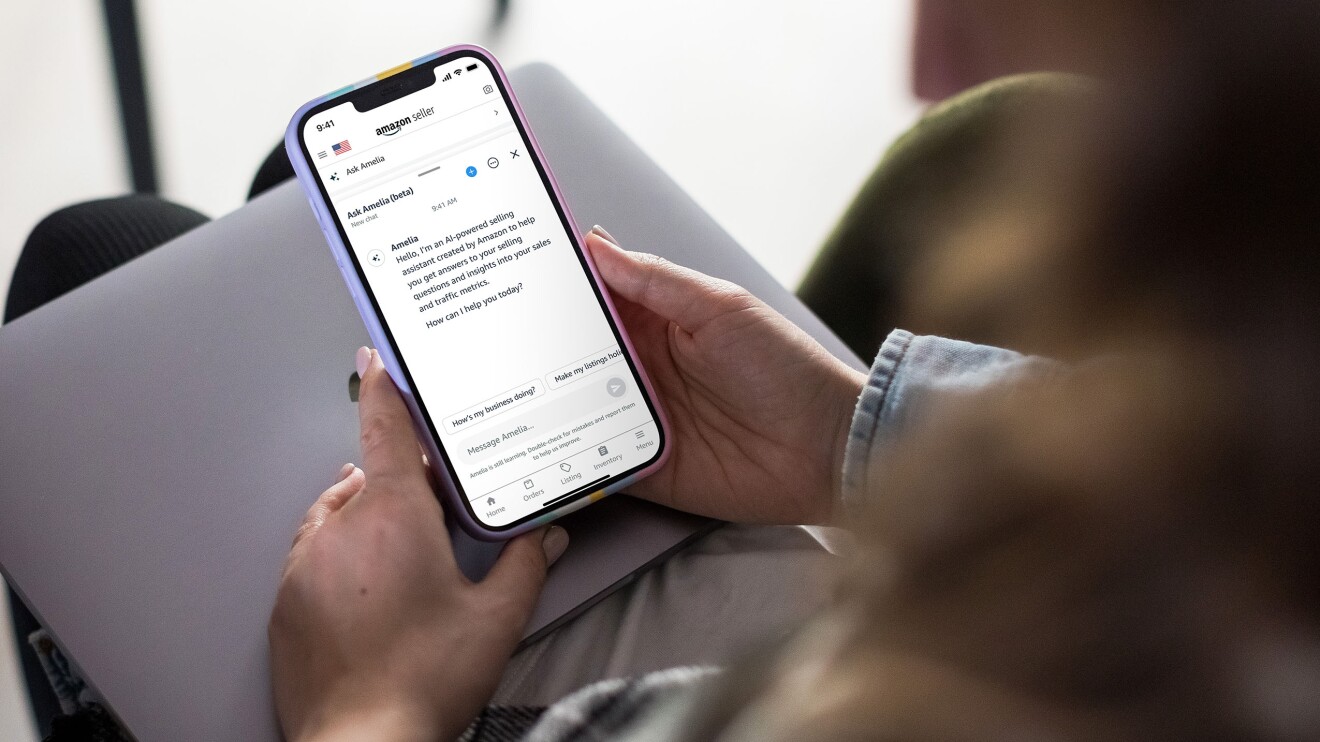Update: Our face shields are now available at-cost on Amazon.com. A pack of 25 is $66.25 ($2.65 per shield)—which is a third less than the cost of all other reusable face shields currently available to frontline workers. We’ve donated 30,000 more face shields than originally anticipated, and we’re proud to announce that we’ll donate another 150,000 by the end of this year. Individuals and businesses large and small can make their own National Institutes of Health approved face shield by downloading the open sourced design package, suitable for both 3D printing and injection molding.
The COVID-19 pandemic took communities by surprise. Protective equipment, like face shields for frontline medical staff, were, and continue to be, in short supply.
01 / 03
In early March, a technical program manager at Amazon heard about a community group of 3D printing enthusiasts in Washington State that started making face shields for frontline workers. Comprised of makers and professionals of various vocations, this group had started to develop their own design and was building these by hand out of their homes and offices. Seeing the need, this Amazonian brought on colleagues from Prime Air’s mechanical design and hardware teams. In no time, they were contributing solutions to this growing problem.
Many teams across Amazon specialize in hardware design. In one week, engineers from our world-class drone team, in coordination with the open source group, took the initial design and drastically improved it. The upgrades they made were based on direct feedback from medical professionals—the team improved the quality of the materials to allow them to be reusable, added an enhanced snap feature to keep the shield in-place to make them safer, amended the geometry to reduce sharp edges that could snag clothing or hair, thinned the forehead band to reduce pressure on a person’s forehead, and drastically improved print time making them quicker to manufacture.
Making sure the shields could be produced quickly and at scale, we produced a detailed open sourced design package for both 3D printing and injection molding. This means that anyone, whether an individual or large company, can access and manufacture frames for their community's needs. But we wanted people to also feel safe and trust what was built met the bar. Working with a team of doctors, our Prime Air engineers received approval on their new design by the National Institutes of Health (NIH). With this approval, medical professionals knew the shields were authorized to the national standard and could feel comfortable accepting them as donations, or if they wanted to produce them on their own.
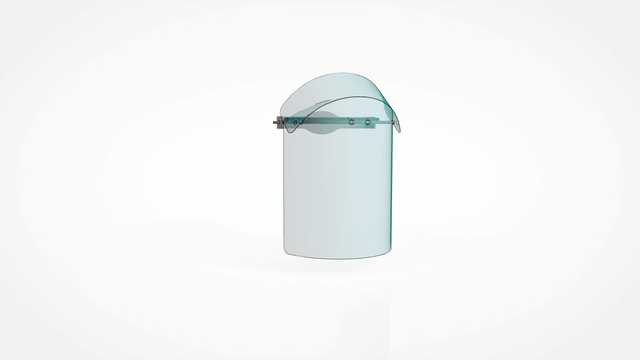 Digital rendering of the face shield and components
Digital rendering of the face shield and componentsDeveloping a safe and more comfortable design that had never been seen before was one area we used our talents of invention and bias for action to make things better during this crisis. Another way relates to the manufacturing. It’s no secret Amazon has expertise in supply chain. Putting our scale to use for good, we repurposed our manufacturing facilities and are working with outside vendors to produce these new face shields quickly, and at a fraction of the cost. An example of this is how we’re using a machine that ordinarily cuts fibre materials to manufacture drones but is now being used to cut screens for the face shields.
To date, Amazon has donated nearly 10,000 face shields and is on track to deliver 20,000 more in the coming weeks. To help quickly meet the growing requests from medical professionals across the country, we have decided to start mass-producing these face shields and aim to make hundreds of thousands available over the next few weeks, at-cost, on Amazon.com. Because of the design innovations and the capabilities of our supply chain, we are confident we will be able to list them at a significantly lower price—almost a third of the cost—than all other reusable face shields currently available to frontline workers. We are looking to prioritize frontline workers and then eventually open up to all Amazon customers.
We have amazing teams creating and building every day. Watching them quickly adapt to the community’s needs during this stressful time and develop a face shield that we’ve heard from medical professionals is one of the best has been such a rewarding experience. It’s important that these critical supplies get to healthcare and government organizations and we want to help make that happen—whether that’s working with the open-source community, donating the shields, or selling these essential supplies. We are committed to leveraging our scale for good and putting our ability to innovate quickly into use to support communities.
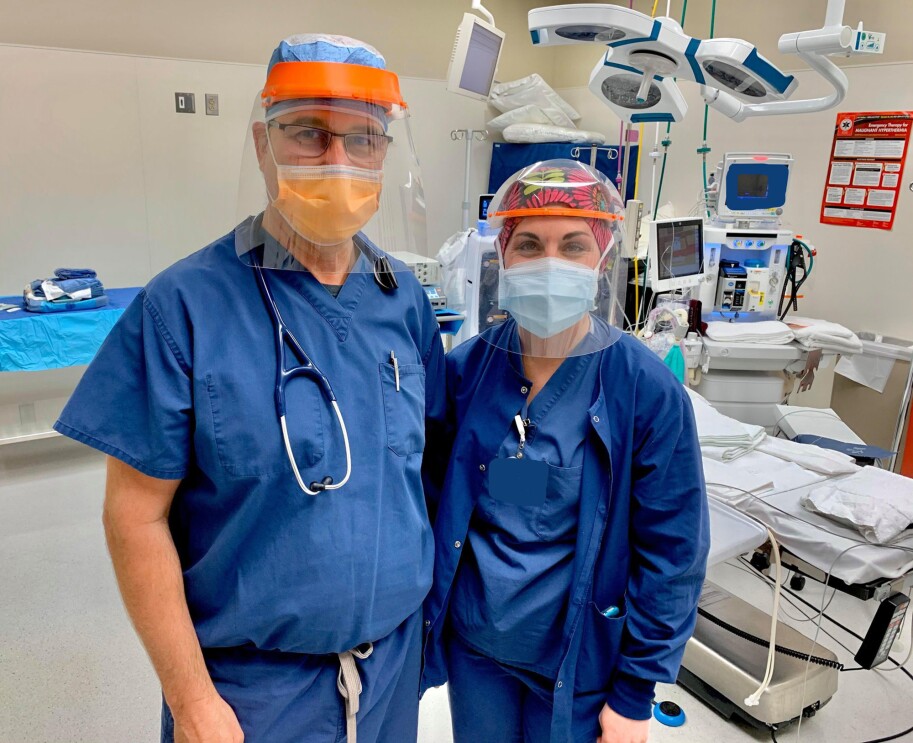 Medical staff wearing face shields created by this initiative
Medical staff wearing face shields created by this initiativeTrending news and stories




